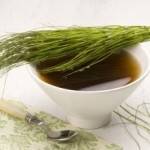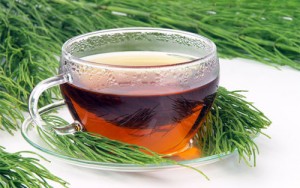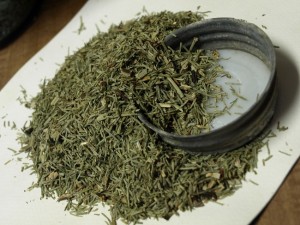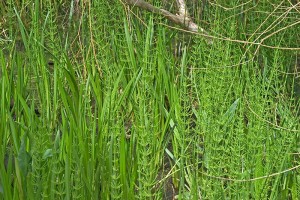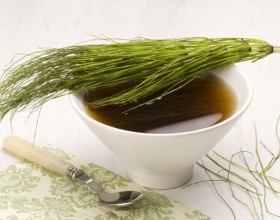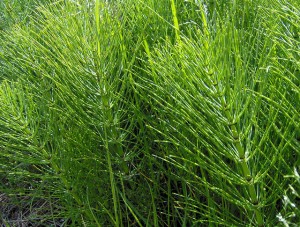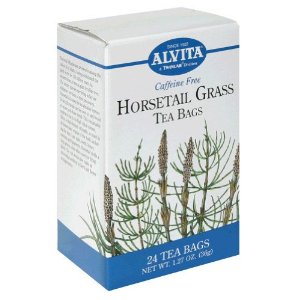Horsetail Tea
Horsetail tea, with its light taste and aroma, is an herbal drink prepared from the dried or fresh horsetail fern (Equisetum arvense), also known as the shave grass, found in North America, Asia, Europe, and the Middle East. Rich in vitamins, antioxidants, silica and other minerals, this infusion has been valued for its numerous medicinal properties.
History and origin
In ancient Rome and Greece, the herb was commonly used as a medicine for stopping bleeding, healing wounds, and for promoting urine production. A famous 17th-century herbalist, Nicholas Culpeper, recommended its use for the treatment of skin inflammation, ulcers, and kidney stones. Indigenous people in North America belonging to the Chippewa, the Cherokee, and the Potawatomi tribes had this tea to relieve the symptoms of kidney diseases.
Horsetail tea benefits: what is it good for
Presence of antioxidants
Because of its high antioxidant and bioflavonoid content, having it regularly helps to slow down the spread of cancer cells. Since it has anti-cancer properties, it defends the body against the harmful effects of free radicals.
Antimicrobial property
Also known for its antimicrobial activity, it keeps you protected from allergens and viruses. As demonstrated in some scientific studies, its intake is beneficial for lessening the symptoms of bacterial and fungal infections.
Anti-inflammatory property
In some clinical studies, its consumption has proved to be helpful in alleviating joint and muscle aches caused by certain inflammatory conditions like rheumatism, gout, and arthritis.
Stops excessive bleeding
Its hemostatic and coagulating properties aid in relieving the discomfort caused by injuries and wounds. Regularly drinking it helps to minimize excessive bleeding during heavy periods.
For osteoporosis
Some research studies have shown the positive impacts of horsetail on bone density in postmenopausal women suffering from osteoporosis. Taking this decoction along with foods rich in calcium has been found helpful for increasing the strength of connective tissues, enhancing the flexibility of bones, helping in faster healing of fractures.
Respiratory conditions
It is utilized as a natural remedy for respiratory problems like bronchitis, dry cough, and infections of the respiratory tract. Drinking a cup of horsetail tea provides relief from nasal congestions and other symptoms of cold and flu.
Useful for detoxification
As it has diuretic properties, the functioning of the urinary bladder and the kidneys is considerably improved with its consumption, helping in removing excess water and cleansing the body. Therefore, it prevents fluid retention, improves the symptoms of edema significantly, and even helps to lose weight.
The high silica content helps in flushing out toxins, preventing the accumulation of heavy metals like aluminum that are believed to trigger Alzheimer’s disease.
For diabetes
Its short-term intake is beneficial for those with type-2 diabetes since it helps in reducing blood glucose levels significantly.
Urinary tract infection and incontinence
Its astringent property, due to the presence of tannins, makes it effective in resolving problems of the urinary tract. Since it strengthens the muscles of the urinary bladder, it helps to hold urine for longer. Thus, it proves useful in providing relief for urinary incontinence.
Other uses
- Massaging a mixture of 3 drops of this herbal extract and 2tbsp of olive oil/coconut oil strengthens the hair follicles, improves blood circulation, and promotes hair growth. Cold horsetail tea can also be used for rinsing the hair after a normal shampoo.
- Brittle or weak fingernails can be strengthened by dipping them for 20 minutes in a cold infusion of horsetail.
- A cotton swab soaked in the tea could be rubbed on the skin to treat acne, skin lesions, rashes, and burns, as well as to minimize the risks of wrinkle formation.
- Lukewarm horsetail tea could be used as a mouthwash for the treatment of mouth sores and bleeding gums. It can also be gargled for about 3 minutes to relieve the symptoms of tonsillitis.
How to make horsetail tea
- Take 3-4 tsp of fresh or dried horsetail herb in a teapot
- Pour 8 oz of boiling water into it
- Cover the teapot
- Steep for 5 minutes
- Strain the mixture
- Add honey or sugar for enhancing the taste
Safety and precaution
Side effects
In general, consumption of horsetail tea is safe, but having it in excess for longer periods is not recommended because the constituent chemical thiaminase could result in the deficiency of the vitamin thiamine. Those with low potassium levels and low blood sugar levels should use it cautiously.
During pregnancy
It should be avoided by expecting and nursing mothers since no scientific evidence has backed its use during these times.
Where to buy
Organic horsetail herbs cut into pieces and packed in tea bags can be purchased from local herbal tea shops and online tea stores.
References
- https://www.mountsinai.org/health-library/herb/horsetail
- http://www.homeremediesweb.com/horsetail-health-benefits.php
- http://www.naturalalternativeremedy.com/sixteen-horsetail-benefits/
- http://www.webmd.com/vitamins-supplements/ingredientmono-843-horsetail.aspx?activeingredientid=843&activeingredientname=horsetail
Article was last reviewed on 24th July 2021
Related Articles
Leave a Reply
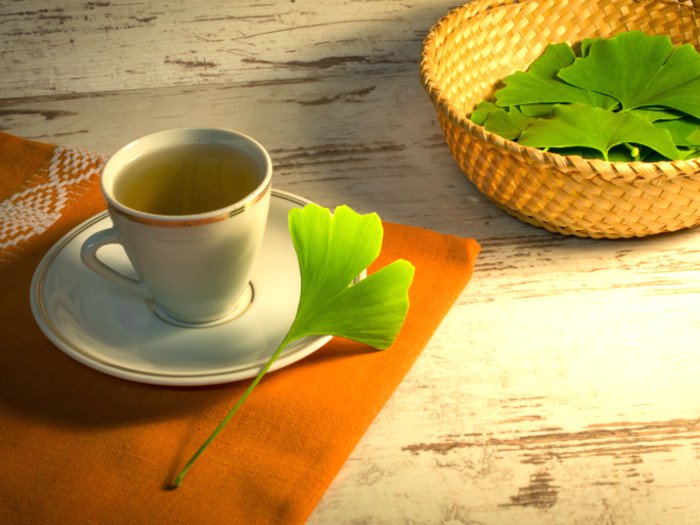
Ginkgo Biloba Tea
The Ginkgo Biloba tea is an herbal infusion obtained from the extract of the dried leaves
Read more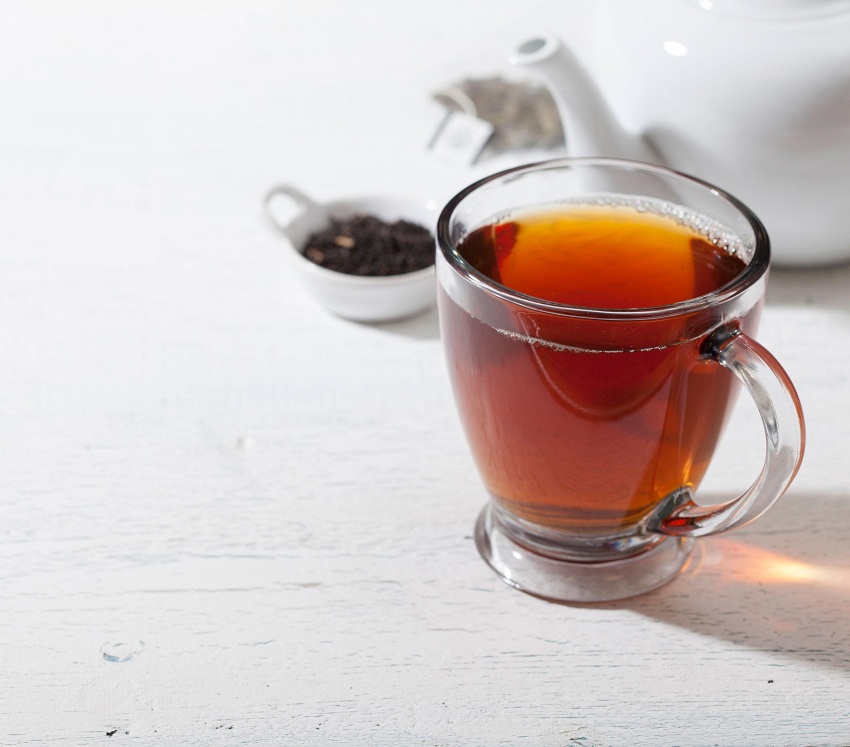
Black Tea
Black tea, belonging to the same group as the green, white and oolong teas is the most oxi
Read more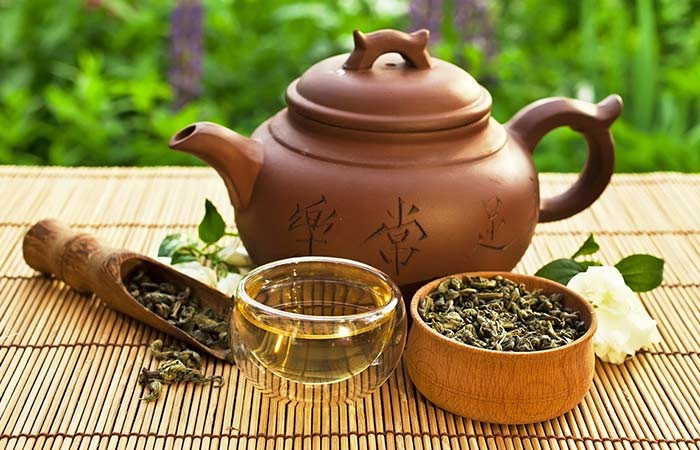
Oolong Tea
What is oolong tea Oolong, a traditional beverage of China, is prepared from the buds, st
Read more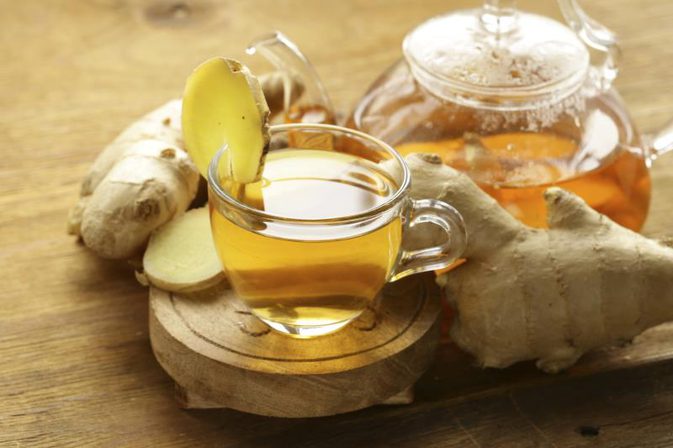
Ginger Tea
Ginger tea, prepared from the roots of ginger, is a popular herbal beverage of Asia. Becau
Read more
